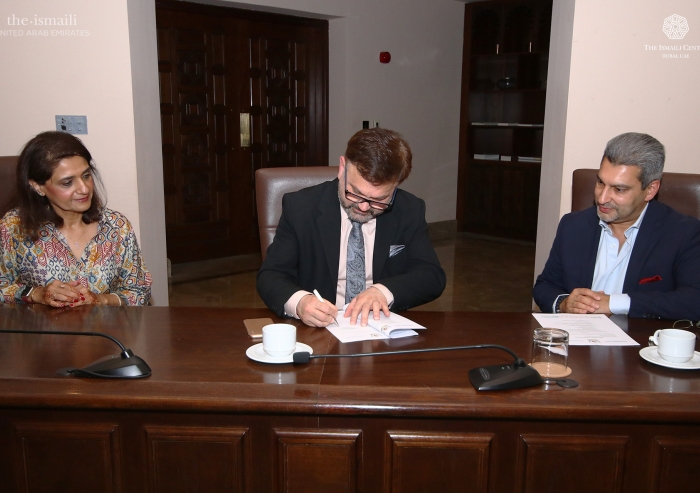“Corruption appears on both land and sea because of (the evil) which men's hands have done” The Holy Qur’an [30:41]
This ayah from the Qur’an communicates one of the most pressing issues in the world today: environmental degradation. Our actions have caused harm to our planet and it is time we accept responsibility and ensure that we are doing our part in protecting the environment.
Humanitarianism is defined as ‘the promotion of human welfare’ and one way that this can be achieved is through actions that protect our environment. Over the years, climate change has had detrimental effects on society: food shortages, rising sea levels, and extreme temperatures are just a few ways in which humans suffer the effects of global warming. In the UAE, efforts have been taken at macroscopic levels in the form of policy development, but also at the microscopic level via community initiatives, including those within Jamati institutions.
In an attempt to combat environmental change, the United Arab Emirates has recently invested in ‘The Green Economy Initiative’. Through this initiative, the UAE aims to become one of the world leaders in the green economy acting as a hub for technology development, and the export and re-export of green products and technologies. This is a way to maintain a sustainable environment to support long-term economic growth. The initiative has taken form through an investment in regulating the carbon production of businesses. The cross-sectoral cooperation between the legal, technological, and management sectors allows for tangible impact to be made across all income levels. At a macroscopic level, the UAE is a world leader in combating climate change.
Furthermore, members of the Jamat have also taken efforts in an attempt to combat climate change. When mentioning the work of the youth in developing solutions to environmental problems, Saira Gulamani, member of the ITREB board, emphasizes the talent and innovation she has seen. “One idea that students of the robotics club developed is a robotic garbage bin, cleaning up the environment by removing trash using robotics and AI technology.” This work is a further reinforcement of the words of His Highness the Aga Khan in the keynote address at the Institute for Ismaili Studies (IIS). When speaking about the importance of using science and innovation to understand and better the environment, His Highness noted that “Scientific pursuits, philosophic inquiry, and artistic endeavour are all seen as the response of the faithful to the recurring call of the Qur'an to ponder the creation as a way to understand Allah's benevolent majesty”
Governments are doing their part but let us do ours, and strive to make changes in our daily lives. For example, if you own a manufacturing business, are there ways that you can make your production more environmentally friendly by discharging lower emissions? If you are a teacher, could you educate the youth on the importance of taking care of our environment by consuming natural resources more responsibly? If you are an events manager, could you use recyclable material in the events that you plan? Let us embody the fundamental ethics that underpin the work of the AKDN: governance, innovation, respect for our planet, and compassion.
Written by: Zayaan Merchant








